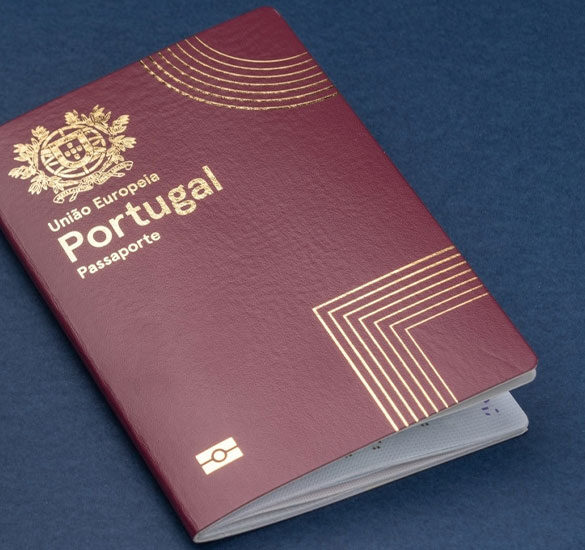
WHY RETIRE IN PORTUGAL?
Portugal is a top destination for tourism and an increasingly ideal place if you’re looking to retire abroad.
The country combines amazing quality of life with endless sunshine, fresh air, amazing coastline, incredible views and stunning beaches with cosmopolitan urban life, rich cultural heritage, world class gastronomy & wines, safety and a relatively low cost of living.
The tax laws for people who want to retire to Portugal make it very appealing to find a property and reallocate.
The Algarve with its amazing weather all year round is particularly sought after by UK and US expats.
Top 10 Reasons To Retire In Portugal
- Sunny Weather
- One of the safest countries in the world
- High Quality of Life
- Low Cost of Life
- Stunning Landscapes
- Friendly People
- Amazing Food & Gastronomy
- Fantastic Real Estate & Investment Opportunities
- One of the best Healthcare systems in the world
- Very attractive Tax benefits for retirees
WHO CAN RETIRE IN PORTUGAL
It is fairly simple to retire to Portugal. It is estimated that over 100.000 expats have retired in the Algarve region alone, many of them British.
EU Citizens
For EU Citizens it is very easy to apply for Portuguese residence. Just apply at one of the SEF ( Serviço de Estrangeiros e Fronteiras) offices throughout the country.
→ There are no special requirements for citizens from the European Union.
NON-EU Citizens
If you come from a non-EU country there are 2 main ways you can retire in Portugal:
- D7 Visa – Any citizen that can make proof of income can retire in Portugal and be granted a residence permit. Learn more about the D7 Visa program here
- Golden Visa . This popular program grants residence permit through a financial or real estate investment starting at €280.000. Learn more about the Portugal Golden Visa program here.
US CITIZENS
- If you are a US citizen you can establish residence through a 120-day Visa, making proof of income of at least $1.070 per month and be granted a 1 year residence permit.
- After that initial period you can renew under the same conditions for 2 more years and after 5 years living in Portugal you can finally apply for permanent residency
SEPHARIC JEWS
- If you can prove you have Sephardic ancestry you can apply for Portuguese citizenship by showing the necessary documentation. You can keep dual citizenship if your country of origin also allows for that.
RETIREMENT LAWS AND RETIREMENTS TAX IN PORTUGAL
Since 2009, Portugal has a tax regime for non-habitual residents that is very appealing for foreigners.
The NHR (non-habitual tax resident regime) allows foreign residents to benefit from a lower, fixed tax rate, instead of the progressive tax rates for nationals which can go up to 48%.
This is available for anyone who has not been a Portuguese tax resident for the previous 5 years. In sum:
- any income earned abroad is exempt from taxation in Portugal for 10 years
- any income generated in the country will be taxed at a flat rate of 20% instead of the progressive rate of up to 48%
HOW TO MOVE YOUR PENSION/FUNDS TO PORTUGAL
If you are an EU member, moving your pension is very simple but if you are a non-EU citizen you should check with your pension institution in your country of origin to see if it can be transferred to Portugal and in what conditions.
Your pensions from another country could be liable for taxation in Portugal which can be avoided if you obtain the NHR status mentioned above.
INHERITANCES AND RETIREES IN PORTUGAL
There is no inheritance tax in Portugal but there is a stamp duty at a flat 10%. However usually spouses, ascendants and descendants are exempt from this tax.
The Portuguese Civil Code states that the inheritance process is governed by the law in the country of the deceased.
If one of the spouses for instance has Portuguese permanent residence then Portuguese Law may apply.
This is one of the situations where it is convenient to have a will written and to consult with a legal expert in advance.
HEALTHCARE IN PORTUGAL
Portugal ranked at 12th place in Healthcare System efficiency among all WHO member states.
Portugal has a public national healthcare system much like the UK’s NHS and it’s virtually free, the overall healthcare system includes the public system as well as private healthcare options.
The public healthcare system covers all essential and non essential procedures except for dental and cosmetic surgery.
For essential procedures and emergencies you are fine since medical doctors and professionals are extremely qualified and hospitals are very modern with state of the art equipment.
However for regular care and non essential services you will be best served by a private healthcare option since the public healthcare system is usually understaffed and queues and waiting times for basic services are a problem.
Public healthcare is accessible to all legal residents, nationals and EU citizens so if you’re planning to live in Portugal and do not fall in any of these categories, it is preferable to apply for a private health insurance until your legal status changes.
Private Health Insurance in Portugal is fairly cheap (between €20-€100) a month and you can cover a wide range of expenses and pre-existing conditions.
COST OF LIVING IN PORTUGAL AND REAL ESTATE
Portugal is one of the countries with the lowest cost of living in the EU.
It is about 30% less expensive to live in Portugal than in the US for example.
With around €1750-€2000 per month you can live comfortably, paying for basic groceries for 2, utility bills, cell phone, cable and internet, leisure (movies and eating out twice a week) plus car expenses.
Real estate prices in Portugal are increasing but the average rental and market price of real estate is still much lower compared to other western European countries.
In urban areas like Lisbon and Porto and touristy destinations like the Algarve, house prices can be very high specially in trendy neighborhoods and villages, but as you go outside these areas and step into the interior of Portugal you can get great property at a fraction of the price.
OPENING A BANK ACCOUNT
One of the first things you will need to do when moving to Portugal will be to open a bank account.
While it is not mandatory, it will definitely be very convenient in order to apply for certain services and mandatory if you are buying property.
Portugal has dozens of commercial banks, all very modern, providing various services and state-of-the-art online banking platforms.
The first thing you will need to do is get a NIF (Fiscal Identification Number) and deliver the following documentation in your chosen bank:
- Proof Of Identification – Passport is enough
- Proof of Address
- Proof of Income/Employment
- Portuguese Phone Number
- Portuguese NIF
- A Cash deposit ( varies by bank can range from €50 to €300)
GETTING YOUR NIF
If you’re planning on moving to Portugal you will soon find that you will need to apply for a NIF in many situations such as opening a bank account, getting health insurance, buying a house or a car, setting up a TV/Internet contract and many more situations.
How do you get your NIF?
There are several options:
- Apply for a NIF by going directly to a local Finances Department (not the best option since non-EU citizens need to bring a tax representative with them and queues can go on for hours)
- Pay a company to get you a NIF (you can do this online by giving power of attorney to a company or professional)
- Ask someone to be your tax representative and handle that for you ( also possible online and should be done with someone you trust)
- Apply for a NIF by email (only for EU citizens)
NEED HELP RETIRING TO PORTUGAL & FINDING A HOME?
If you are looking for guidance and support throughout your process of retiring to Portugal and finding the right property please contact HOMZ Portugal today and we will get started immediately! Our consultation is FREE and we can help you make your experience truly hassle-free and rewarding!




